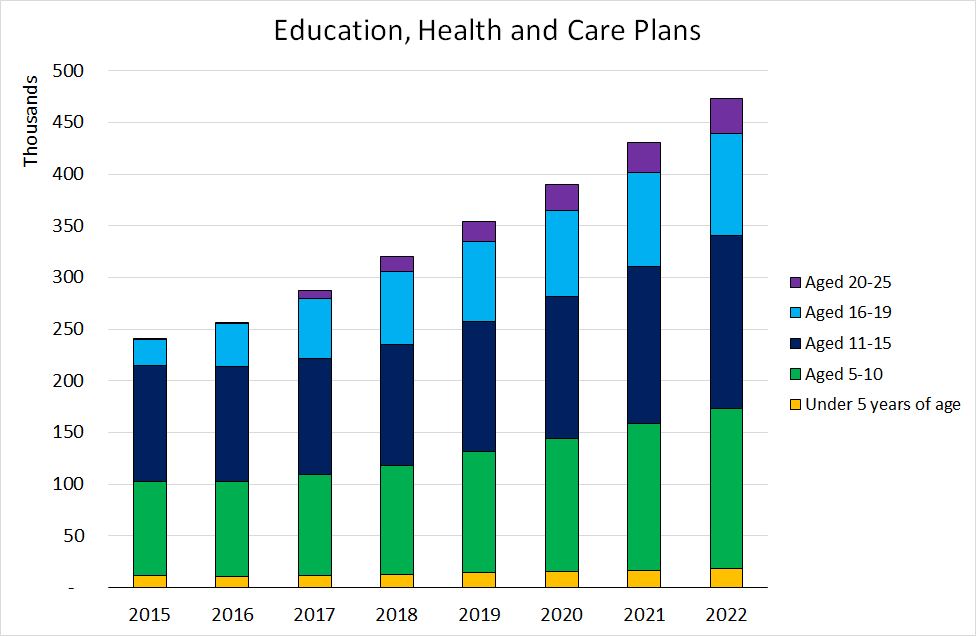
As of January 2022, there were 473,255 children with plans in place, compared with 430,697 the previous year, marking a 9.9 per cent increase.
The number of children subject to EHCPs and statements, which predated the plans, has increased each year since 2010 and the latest figures indicate further dramatic rises are likely, as demand among parents for assessments is increasing.
The figures show that requests for an assessment for a plan have rocketed by almost a quarter from 75,951 in 2020 to 93,302 in 2021. This is the highest figure since the data was first collected in 2016.

Register Now to Continue Reading
Thank you for visiting Children & Young People Now and making use of our archive of more than 60,000 expert features, topics hubs, case studies and policy updates. Why not register today and enjoy the following great benefits:
What's Included
-
Free access to 4 subscriber-only articles per month
-
Email newsletter providing advice and guidance across the sector
Already have an account? Sign in here

